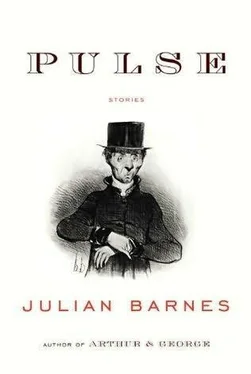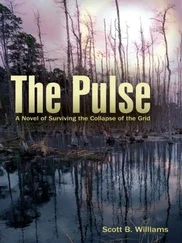Jake’s parents split up when he was ten. That’s why he’s got no big expectations, he says. Enjoy the day, he says, keep things light. It’s as if he’s applied the rules of his running group to the rest of his life as well. Part of me’s impressed by this attitude, but most of me doesn’t want it or envy it.
The first time Janice and I split up, Jake took me to a wine bar, and while I sipped my daily allowance of a single glass, he told me, in a sympathetic, roundabout way, how in his opinion she was untruthful, manipulative and quite possibly psychopathic. I replied that she was a lively, sexy but complicated girl whom I sometimes couldn’t read, especially at the moment. Jake asked, in an even more roundabout way, if I realised that she’d come on to him in the kitchen when he was round to supper three weeks previously. I told him he was just misreading her friendly manner. That ’s why she’s a psychopath, he replied.
But Jake often called people psychopaths when they were simply more focused than he was, so I didn’t take it too much amiss, and a couple of weeks later Janice and I were back together. In that first rush of renewed sex and excitement and truthfulness, I nearly told her what Jake had said, but thought better of it. Instead, I asked if she’d ever thought of going off with someone else, and she said yes, for about thirty seconds, so I gave her marks for honesty and asked who, and she said no one I knew, and I accepted that, and not long afterwards we got engaged.
I said to my mother, ‘You do like Janice, don’t you?’
‘Of course I do. As long as she makes you happy.’
‘That sounds… conditional.’
‘Well, it is. It would be. A mother’s love is unconditional. A mother-in-law’s love is conditional. That’s how it’s always been.’
‘So if she made me unhappy?’
My mother didn’t reply.
‘And if I made her unhappy?’
She smiled. ‘I’d put you across my knee.’
As it turned out, we almost didn’t get to the wedding. We each postponed once, and even got an official warning from Jake about discussing heavy stuff while out running. When I put it off Janice said it was really because I was scared to commit. When she put it off it was because she wasn’t sure about marrying someone who was scared to commit. So somehow it was my fault both times.
One of my father’s bridge partners suggested acupuncture. Apparently it had done wonders for the fellow’s sciatica.
‘But you don’t believe in that stuff, Dad.’
‘I’ll believe in it if it cures me,’ he replied.
‘But you’re a rationalist, like me.’
‘We don’t have a monopoly of knowledge in the West. Other countries know things too.’
‘Sure,’ I agreed. But I felt a kind of alarm, as if things were slipping. We need our parents to remain constant, don’t we? And all the more so when we’re grown up ourselves.
‘Do you remember – no, you’d’ve been too young – those photos of Chinese patients having open-heart surgery? All they had by way of anaesthetic was acupuncture and a copy of Mao’s Little Red Book .’
‘What chance those photos were complete fakes?’
‘Why should they be?’
‘Mao worship. Proof of the superiority of the Chinese way. Also, if it worked, keeping down medical costs.’
‘You see, you said if it worked .’
‘I didn’t mean it.’
‘You’re too cynical, son.’
‘You’re not cynical enough, Dad.’
He went to this… whatever acupuncturists call their surgery or clinic, in a house on the other side of town. Mrs Rose wore a white smock, like a nurse or dentist; she was fortyish and sensible-looking, Dad told us. She listened to his story, took his medical details, asked if he suffered from constipation, and explained the principles of Chinese acupuncture. Then she left the room while he stripped to his underpants and lay down under a paper sheet with a blanket on top of it.
‘It was all very professional,’ he reported. ‘She starts by taking your pulses. In Chinese medicine there are six, three on each side. But the ones on the left wrist are more important because they’re for the major organs – heart, liver and kidneys.’
I didn’t say anything – just felt my alarm growing. And I expect my father read my mood.
‘I said to Mrs Rose, “I’d better warn you, I’m a bit sceptical”, and she said that didn’t matter because acupuncture works whether you believe in it or not.’
Except presumably it takes longer with sceptics and so costs more money. I didn’t say this either. Instead I let Dad tell us how Mrs Rose measured his back and marked it up with a felt-tip pen, then put little piles of stuff on his skin and set light to them, and he had to sing out when he felt the heat, and she’d pick them off him. Then there was more measurement and felt-pen markings, and she began sticking needles in him. It was all very hygienic and she dropped the used needles into a sharps box.
At the end of the hour she left the room, he put his clothes back on and paid her fifty-five pounds. Then he went off to the supermarket to buy dinner. He described standing there in a sort of daze, not knowing what he wanted – or rather, wanting everything he looked at. He wandered around, buying all sorts of stuff, came home in a state of exhaustion, and had to take a nap.
‘So you see, it obviously works.’
‘You mean, you smelt your dinner?’
‘No, it’s early days – that’s only my first treatment. I mean, it clearly has some effect. Both physical and mental.’
I thought to myself: feeling tired and buying food you don’t need, that sounds like a cure?
‘What do you think, Mum?’
‘I’m all for him trying something different if he wants to.’ She reached across the table and patted his arm, near where his mysterious new pulses lay hidden. I needn’t have asked – they would have discussed things beforehand and come to a joint conclusion. And as I well knew by now, divide and rule was never successful with my parents.
‘If it works, I might try it for my knee,’ she added.
‘What’s wrong with your knee, Mum?’
‘Oh, I sort of twisted it. I tripped and bashed it on the stairs. I’m getting a bit trippy in my old age.’
My mother was fifty-eight. She was wide-hipped, with a good, low centre of gravity, and never wore silly shoes.
‘You mean, you’ve done this before?’
‘It’s nothing. Just age. Comes to us all.’
Janice once said that you can never really tell about parents. I asked what she meant. She replied that by the time you were able to understand them, it was too late anyway. You could never find out what they were like before they met, when they met, before you were conceived, afterwards, when you were a small child…
‘Children often understand a lot,’ I said. ‘Instinctively.’
‘They understand what parents let them understand.’
‘I don’t agree.’
‘So be it. The point remains. By the time you think you’re capable of understanding your parents, most of the important things in their lives have already happened. They are who they are. Or rather, they are who they’ve decided to be – with you, when you’re around.’
‘I don’t agree.’ I couldn’t imagine my parents, once they closed the door, turning into other people.
‘How often do you think of your father as a reformed alcoholic?’
‘Never. That’s not how I think of him. I’m his son, not a social worker.’
‘Precisely. So you want him to be Just a Dad. No one’s just a dad, just a mum. It doesn’t work like that. There’s probably some secret in your mother’s life you’ve never suspected.’
‘You’d be laughed out of court,’ I said.
Читать дальше











